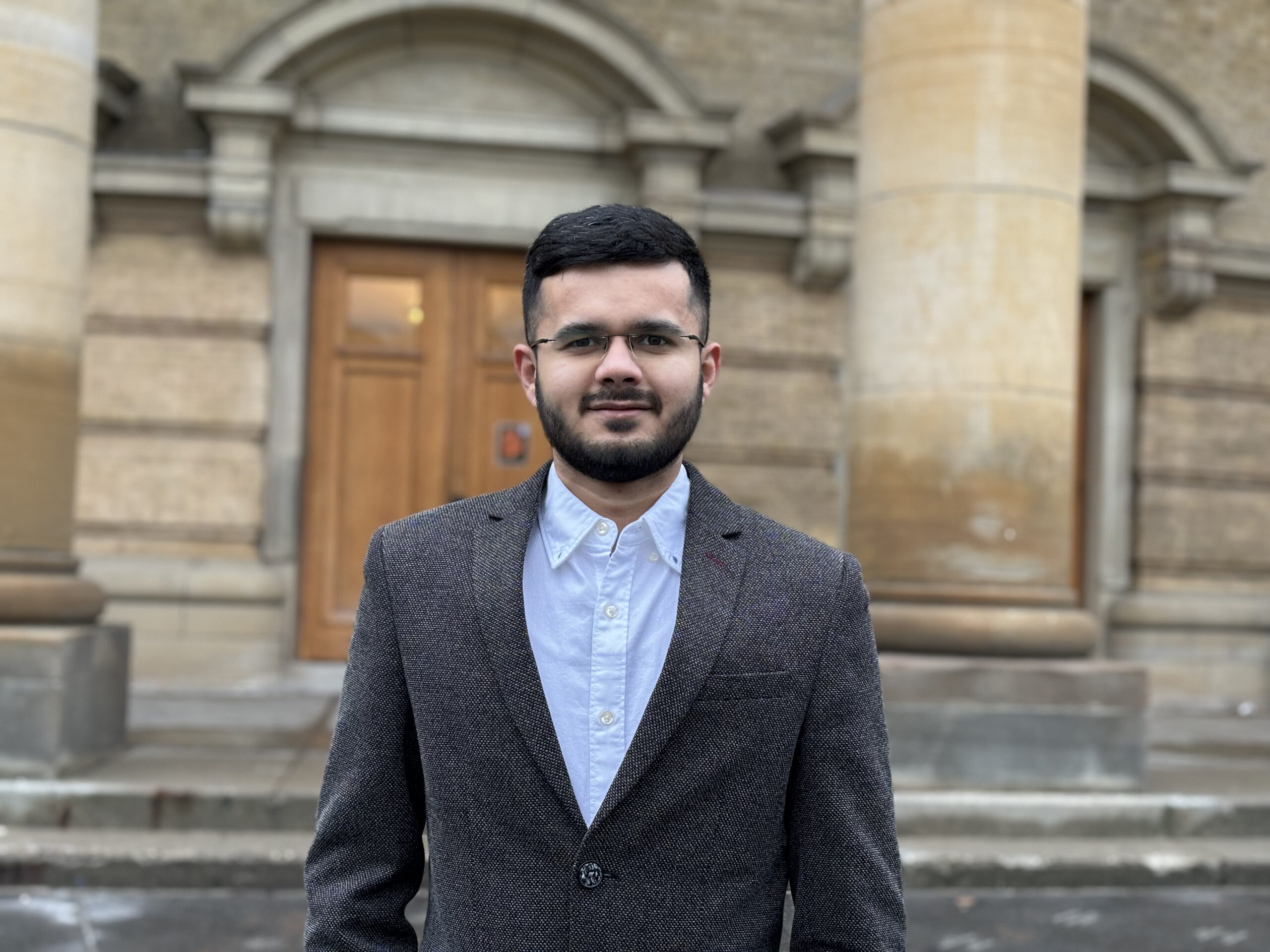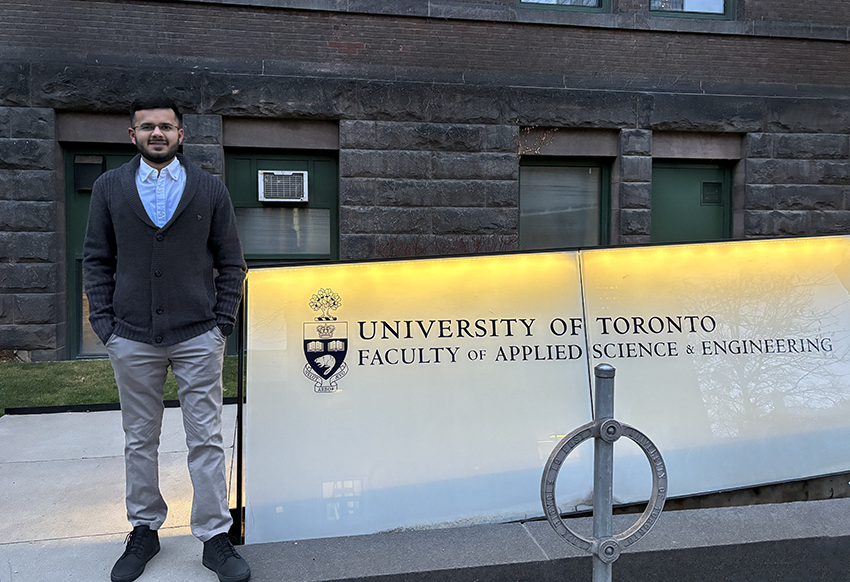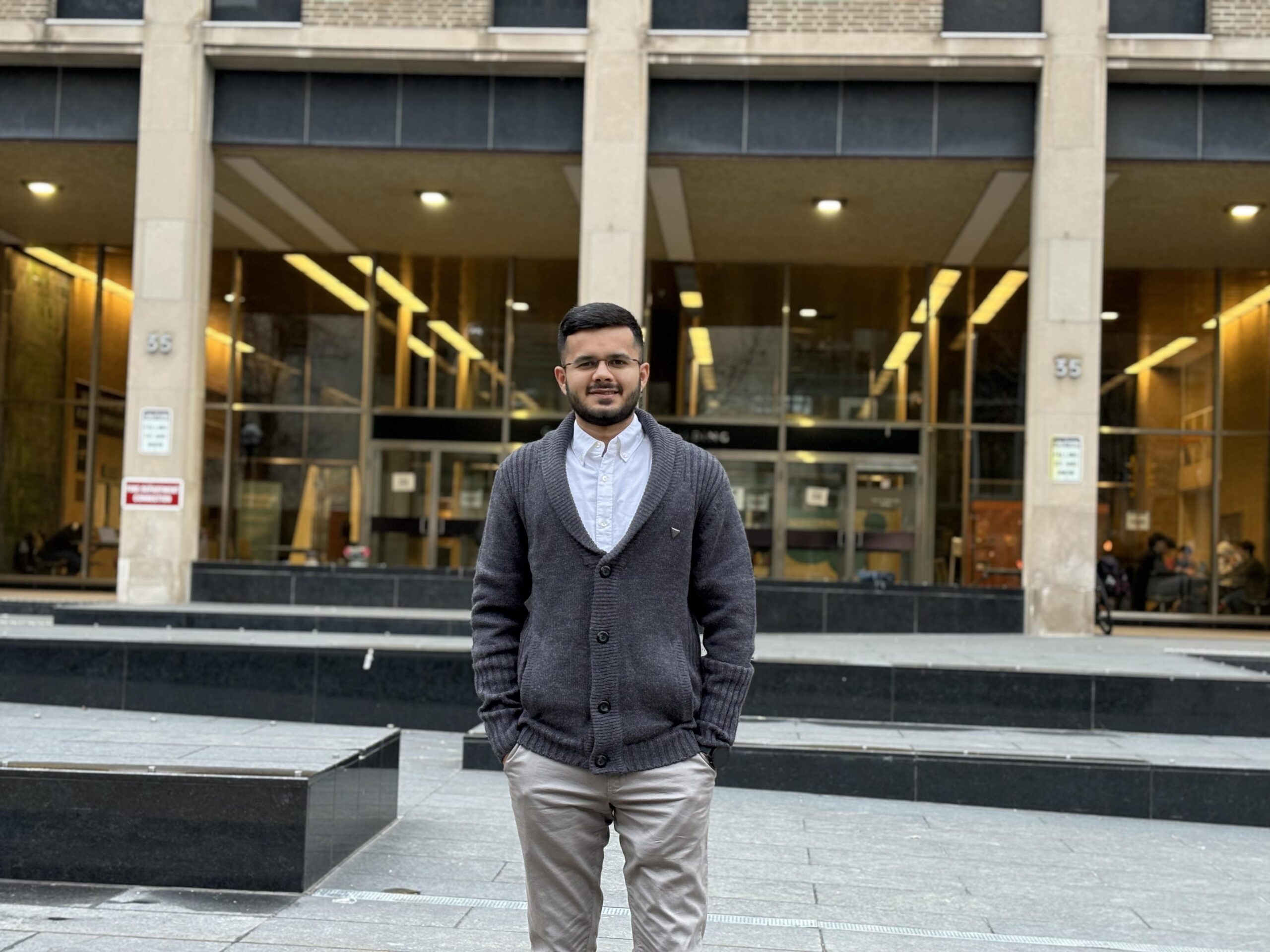CivMin chatted with Tushar Sethi, a passionate international MEng student balancing his career and studies in construction management.

Could you introduce yourself, please?
My name is Tushar Sethi. I’m in the final semester of the Master of Engineering [MEng] in Civil & Mineral Engineering.
What were your courses (emphasis)?
I am specializing in Construction Management with a second emphasis in Entrepreneurship, Leadership, Innovation and Technology in Engineering [ELITE].
Could you recall any projects/assignments completed in your program/emphasis, which helped you build your portfolio or helped you during the interviewing process?
In my Life Cycle Assessment and Sustainability of Engineering Activities CIV1307H course, I worked with a team to analyze the carbon footprint of concrete, the most widely used construction material. Substituting cement in concrete with Supplementary Cementitious Materials (SCM) lowers the impact of GHG emissions from cement, which accounts for 8% of global emissions. Performing the life cycle assessment of concrete with different SCMs by using locally produced raw materials from Ontario helped us study the impact of these materials on climate change, ozone depletion and human toxicity. The lessons I learned from this project can be applied directly in the industry to reduce the GHG emissions of concrete and drive the construction industry towards a green and sustainable future.

Why did you decide to pursue an MEng degree at U of T?
Pursuing an MEng degree at the University of Toronto was a strategic decision that aligns well with my background in large infrastructure projects. During my early years of working in the construction industry, I realized that this industry is very reluctant to adopt new technologies with a long way to modernize and automate the current means and methods adopted in massive construction projects. Looking at the curriculum offered in the MEng program provided me with an opportunity to learn and contribute towards implementing start-of-the-art AI capabilities into these construction projects to focus on reducing the carbon footprint by transforming conventional techniques into sustainable and resilient systems. Additionally, the faculty members for MEng at U of T comprise industry professionals with vast hands-on experience delivering their expert knowledge directly in the classroom to elevate the learning experience. Courses in MEng are industry-focused and crafted professionally, helping me gain technical and transferable skills and make a smooth transition from academia to a professional journey.
As an international student, how did you find Toronto after moving here? Did you receive any support from the Center for International Students' Experience?
As an international student, I found Toronto to be a vibrant and diverse city that offered a wealth of support and resources for newcomers regarding culture, education, and opportunities by being welcoming and inclusive. Toronto’s multicultural character was immediately apparent and incredibly refreshing. I was excited to immerse myself in the city’s vibrant arts, music, and food scenes, discovering new experiences that broadened my horizons.
The Centre for International Experience (CIE) at the University of Toronto was particularly helpful in easing my transition. The CIE provides a range of programs and services tailored to the needs of international students. I remember the orientation sessions, immigration advising, and community-building activities that helped me feel welcomed, connected, and informed about the resources we have at our disposal. The CIE also connected me with campus and community resources to support my academic, social, and personal well-being. One-on-one advising sessions offered by the University Health Insurance Plan were of great help to me when I needed some advice for medical assistance during my first semester of the program. The tours organized by CIE to experience the neighbourhoods surrounding Toronto allowed me to discover and explore the city while connecting with other students along the way. Their dedication to supporting international students like me made a significant difference in my experience of settling into Toronto and thriving as a student.
What is your favourite study spot on campus?
My favourite study spot on campus was the newly built Students Commons building. It’s a modern and sophisticated facility with large windows allowing natural sunlight that helps me concentrate. The Milt Harris Library at Rotman School of Management was my go-to place, with a deck on the fifth floor where I enjoy a good view of the campus and study.

How did your practicum go?
I did a short practicum with my current employer, KAPP Infrastructure Inc. They focus on infrastructure projects in Southern Ontario. During my practicum, I was responsible for supporting the estimation and bidding of a wide range of roads, bridges, culverts, watermain and sanitary transmission projects. My practicum experience illuminated and reinforced many of the academic concepts I learned in various courses of my MEng program.
Are you still working with them?
I currently work in the Estimation Department with KAPP Infrastructure. My role is to explore new infrastructure opportunities in the market from different municipalities and private sector developers in GTHA, then screen the projects that fit in our portfolio and area of expertise. I work on estimating the costs associated with the project to prepare a competitive bid. I emphasize improvising the means and methods by implementing value engineering to optimize the cost. I enjoy my work as it gives me a sense of satisfaction by contributing to public infrastructure projects that add value to the community and leave a positive impact on society.
How did the knowledge gained in the Program help you during your practicum? Does it still benefit you in your job?
The knowledge and skills I gained during my MEng program helped me focus not only on the technical aspects involved in the construction but also examine how it impacts our environment and what systems can be implemented in these projects to make the entire process more sustainable and resilient. Optimizing the costs involved with these multi-billion-dollar projects saves money that can be used for the welfare of society. Working with sustainable materials, understanding the contract documents, enhancing project management systems, using modern BIM-based [building information modelling] tools for estimation and implementing digital project management tools are some of the vital takeaways from my program that cater best to simplify the professional challenges I face at work.
Any plans for the future?
I wish to continue my learning by developing new skills that can enhance my engineering and management expertise. I plan to pursue an MBA program at Rotman after gaining professional experience in the industry. I wish to develop a professional course someday for MEng students and get back to the university to connect with students and help them by sharing my knowledge. I aim to build and deliver an engineering marvel of infrastructure with the potential to positively impact the lives of millions of people.
Any suggestion for future international MEng students?
My suggestion for future students is to focus on learning new skills by experimenting and not just rely on the conventional methodology. Plan your program well by choosing coherent courses and never underestimate the potential of networking with peers, industry professionals, professors, and friends. Be a part of the diverse learning experience that U of T has to offer. Take part in industry nights and connect with like-minded people to explore the countless possibilities and opportunities waiting for you.
One fancy quote from you.
Learning gives creativity, Creativity leads to thinking, Thinking leads to knowledge and knowledge makes you great.
By Galina Nikitina